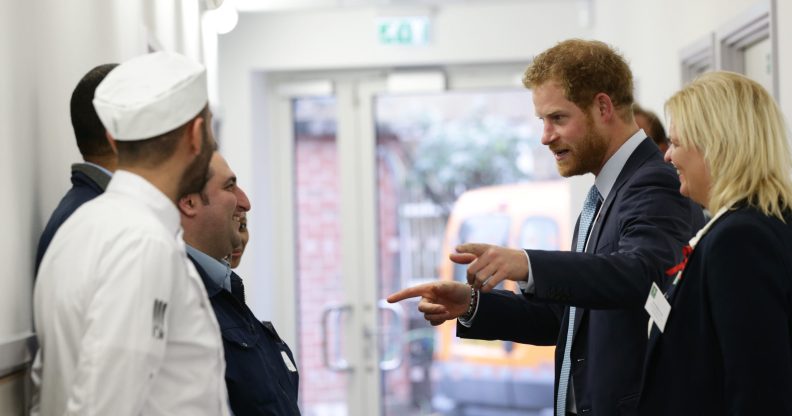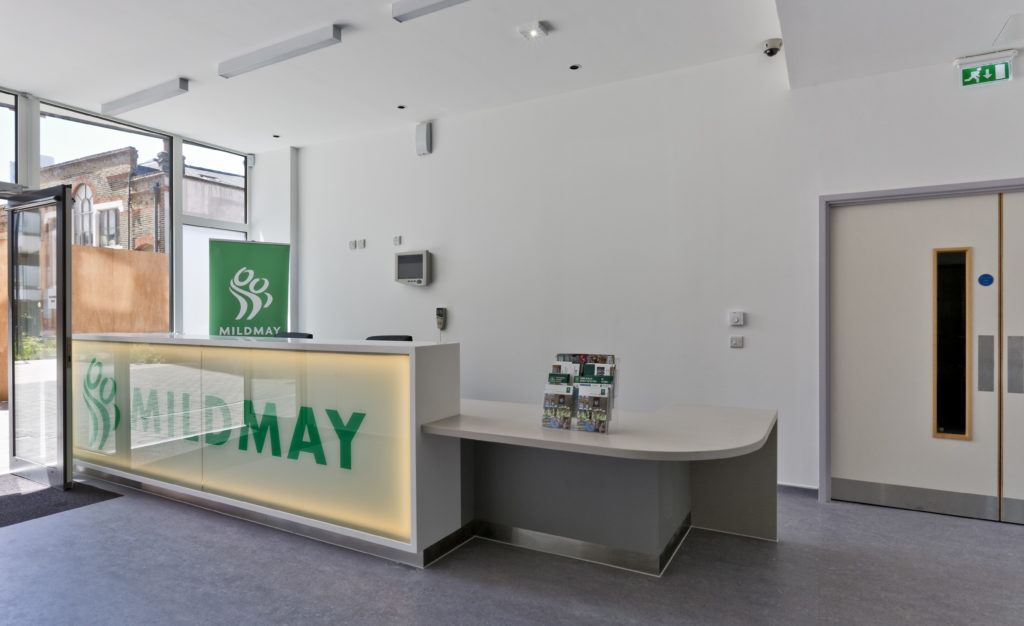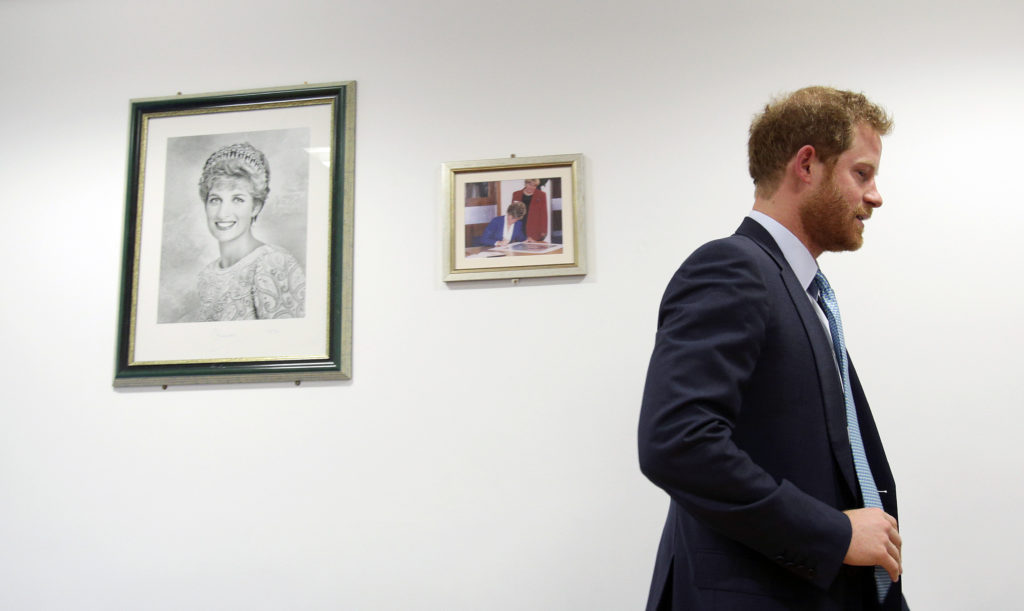Specialist HIV/AIDS hospital may close despite fears of lack of beds for coronavirus patients

Prince Harry meets catering staff during his visit to Mildmay hospital, a dedicated HIV hospital. (Yui Mok-WPA Pool/Getty Images)
As the coronavirus bears down on Britain’s overstretched, underfunded National Health Service, a London hospital lies empty.
Many of the beds at Mildmay Mission Hospital are vacant. Referrals have plummeted, bedding remains neatly made and clinicians nevertheless remain alert, readying for an influx of COVID-19 patients.
But, doctors say, this wave may never come.
Milmay is London’s only specialist hospital for treating those living with HIV and has seen the likes of Princess Diana and Prince Harry walk through its corridors, but threadbare funding may force it to shutter its doors come March.
Hosptial leaders, staffers and HIV advocates are scrambling to pressure the government to keep the clinic open and, despite a shortage of beds looming over doctors, lawmakers have excluded Mildmay from any emergency measures, according to Mildmay’s chief executive Geoff Coleman.
East London HIV hospital may close despite fears of lack of beds for coronavirus patients.
“Even as Mildmay Hospital stands ready to help ease the burden on overstressed NHS hospitals during the COVID-19 epidemic, it has so far been excluded from any emergency measures,” he said in a news release.
“Despite the COVID-19 epidemic impact on the NHS, London’s only HIV/AIDS Hospital, made famous by Princess Diana, faces imminent closure.

The grey walls of Mildmay hospital have coloured the ives of thousands living with HIV. But this might all come to an end. (Anthony Weller/View Pictures/Universal Images Group via Getty Images)
“Today, Mildmay is still waiting to be commissioned and most of the hospital’s beds lie empty.
“Our clinical and support staff are on alert and waiting to go into action.
“We are aware that NHS commissioners have been allocated emergency funding to take any measures necessary to deal with the crisis across London, but despite health secretary Matt Hancock MP saying, ‘Our policy is to fight this virus with everything we’ve got’, we have still not been contacted.”
Mildmay Hosptial’s future is ‘bleak’, says clinic leader.
Coleman told PinkNews the “bleak” road ahead for Mildmay.
HIV acquisition rates are bottoming out in Britain due to leaps in treatment, he said, but the need for the hospital to consider shutter doors wouldn’t be for another five or 10 years.
“It was a bit of a surprise in the autumn last year when our referrals dropped off a cliff edge,” Coleman said.
“Quite a few health leaders are quite concerned that the coronavirus is essentially magnetising all available resources.”
Coleman explained that patients living with HIV will, instead of being referred to Mildmay, stay put in infectious disease wards.

Britain’s Prince Harry passes images of his late mother, Dianna, Princess of Wales, during his visit to Mildmay HIV hospital. (YUI MOK/AFP via Getty Images)
“I think they might be needing them for other things like the coronavirus and so our patients are going to be sitting in those beds taking up valuable hospital beds when they could be with us,” he said.
Doctors and nurses are frightened.
Terrified, they say, of days, weeks, months ahead of them of tough choices and rationed resources.
Hospitals will soon be overwhelmed with patients as coronavirus cases creep upwards, doctors say, and the British government’s sluggish handling of the crisis has only intensified the situation.

